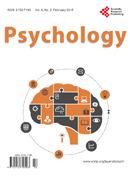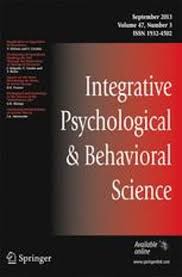Resultaten Onderzoek
U kunt publicaties vinden door te kiezen voor een categorie of een steekwoord. Alle artikelen uit betreffende categorie of met betreffend steekwoord verschijnen dan hier beneden.
Categorieën
Steekwoorden
Categorieën
Steekwoorden
- Toon alle
- ADHD
- Angst/Paniek
- Bloeddruk
- Burnout
- Chronische pijn
- Cognitieve functie
- Cortisol/DHEA
- Dementie
- Depressie
- Diabetes
- Global Coherence
- Hart- & Vaatziekten
- Intuitie & Bewustzijn
- Kanker
- Kinderen/jeugd
- Kosten
- Leiderschap
- Meditatie/Mindfulness
- Metabool syndroom
- Obesitas/eetstoornis
- PTSS
- Schizofrenie
- Slaap & vermoeidheid
- Social Coherence
- Stress
- Veerkracht
- Wetenschap HRV & Coherentie
- Zwangerschap
A 6-Week Worksite Positivity Program Leads to Greater Life Satisfaction, Decreased Inflammation, and a Greater Number of Employees with A1C Levels in Range Published: 2019

Objective: To determine whether a 6-week Positivity Program could impact employee cardiovascular inflammation, blood sugars, cortisol, dehydroepiandrosterone (DHEA), and/or life satisfaction.
Methods: Pre- and post-study blood draw and life satisfaction questionnaire tracked changes in 10 cardiovascular and inflammatory
lees verder...Stress Management Based on Trait-Anxiety Levels and Sleep Quality in Middle-Aged Employees Confronted with Psychosocial Chronic Stress

A stress management program using cardiac coherence was implemented after an organizational down-sizing. The study was conducted in nine voluntary workers in order to evaluate the efficiency of the program. A baseline evaluation was conducted on psychological variables (anxiety, perceived-stress, well- being and sleep), endocrine assessments (urinary cortisol excretion, alpha-amylase and salivary concentrations) and physiological recordings (sleep and heart rate variability). The low number of
lees verder...New Hope for Correctional Officers: An Innovative Program for Reducing Stress and Health Risks

This study investigated the impact of a new stress management program on physiological and psychological stress and health risk factors among 75 correctional officers. The experimental group received training in emotion self-regulation techniques intended to reduce stress and health risk factors. Practice of the techniques was enhanced by heart rate variability feedback, which helped participants learn and sustain use of the self-management tools. Measures of physiological stress included cortisol, DHEA, cholesterol, triglycerides, fasting glucose
lees verder...The Impact of a New Emotional Self-Management Program on Stress, Emotions, Heart Rate Variability, DHEA and Cortisol

This study examined the effects on healthy adults of a new emotional self-management program, consisting of two key techniques,"Cut-Thru" and the "Heart Lock-In." These techniques are designed to eliminate negative thought loops and promote sustained positive emotional states. The hypotheses were that training and practice in these techniques would yield lowered levels of stress and negative emotion and cortisol, while resulting in increased positive emotion and DHEA levels over a one-month period. In addition, we
lees verder...